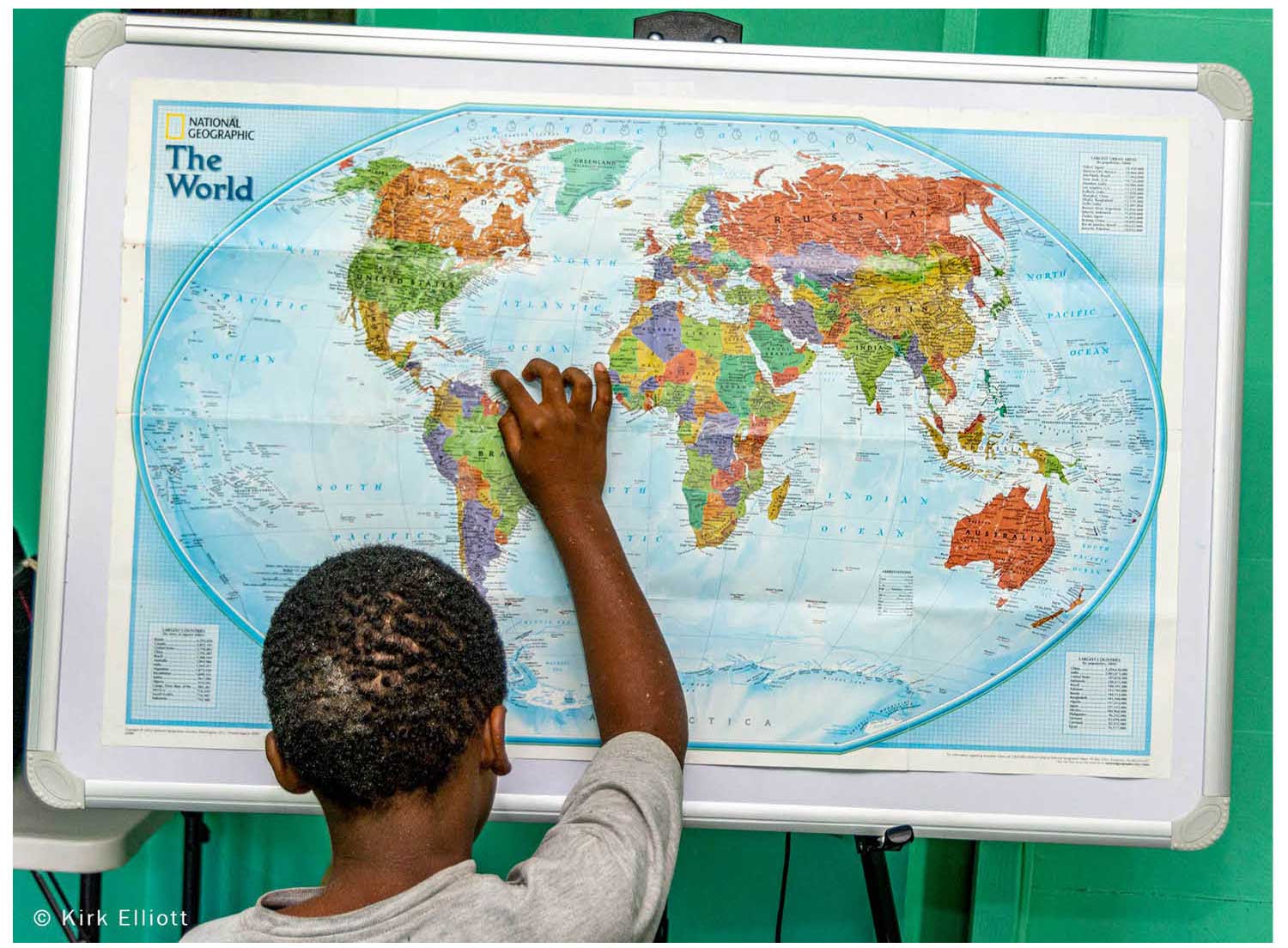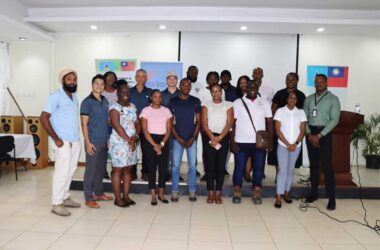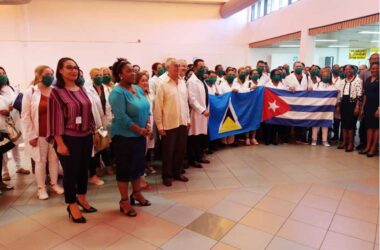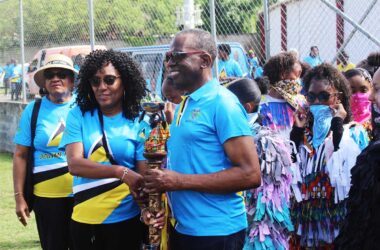As the Fond Gens Libre community in Soufriere, Saint Lucia works to develop an exemplar community-based sustainable tourism product, grass roots education is a cornerstone for success. To ensure that the education is fresh and exciting community partner and mentor Kirk Elliott, gifted the community’s school aged children National Geographic literature some time ago. Elliott has himself gone on to earn National Geographic Certified Educator status so he might better assist the community to appreciate and value the treasure they are entrusted with. This treasure is Saint Lucia’s UNESCO World Heritage Site Gros Piton mountain that Fond Gens Libre sits at the base of. National Geographic Educator Certification has equipped Elliott to support education in the community that evokes a sense of wonder and curiosity, especially in community youth.

Elliott recently tweeted an image of a young community resident, Ali Charles, identifying Saint Lucia on a map. This was Ali’s first time ever interacting with a map and Elliott was shocked to discover that he had no concept of Saint Lucia as an island. “I asked Ali what island he lived on and he responded – Le Fond, which is the colloquial name for his community. So, I explained that Le Fond was his community and again asked what island did he live on, to which he again responded – Le Fond. It was then that I realized how such simple things we take for granted may be completely alien to others, and I committed there and then to work with Ali and the community to help them be the best that they can be” Elliott shared.
Elliott’s tweet has been retweeted within National Geographic multiple times and has found resonance with fellow National Geographic Educators globally. Such recognition goes a long way towards making residents proud and inspires them to deliver guided tourism experiences that wow audiences, having themselves been wowed by the recognition their community has received. It has also helped them recognize that they are no less than anyone anywhere else in the world. Young Ali recently climbed Gros Piton with trainee hiking guides and ethno-botanist Laurent (Jomo) Jean Pierre who schooled them on the flora and fauna of the area. Though this was Ali’s first hike to the top of the mountain he was impressively knowledgeable on the plants along the way. More importantly, Ali was eager to participate and to learn, which augers well for sustainable livelihoods within the community.
Having worked with the community for seven years now, Elliott has come to appreciate that empowering a community to embrace sustainable development and to develop a visionary sense of ownership requires commitment and dedication as progress can be excruciatingly slow before it snowballs. “However, observing Ali’s enthusiasm and recognizing the impact of sticking with and supporting the community makes it all worthwhile” Elliott explained.
Ali has become quite a star in National Geographic circles as a National Geographic Explorer who saw his picture atop Gros Piton has indicated that she wishes to feature that image of Ali as the leading image for her Ocean and Global Climate Program.
Developing community based sustainable tourism in small island developing states is an important step in building island resilience and injecting meaningful economic benefits directly into communities. Big thanks are therefore due to the National Geographic Education Program for a learning framework that has fostered the development of community-based solutions to global challenges.












![Amy Stephen [Photo credit: Community Tourism Agency]](https://thevoiceslu.com/wp-content/uploads/2026/01/Amy-Stephen-feat-380x250.jpg)
